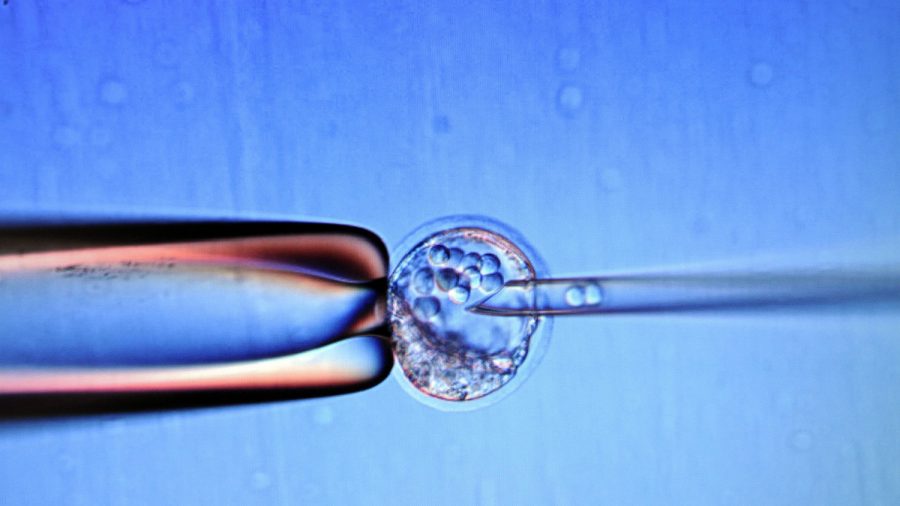A woman in Massachusetts is suing a Rhode Island hospital that froze her embryo and kept it in storage for over a decade without her knowledge, she claimed.
Marisa Cloutier-Bristol stated in her lawsuit against Women & Infants Hospital in Providence that its carelessness caused her severe emotional distress by taking away her chance to have another child, reported The Providence Journal.
In August 2017, Cloutier-Bristol learned for the first time that the Women & Infants Hospital in Providence had kept a cryopreserved embryo of hers in storage since 2004, the same year she underwent in vitro fertilization (IVF) treatment with her husband at the time, John Cloutier.
Woman Sues Fertility Clinic Over Secretly Freezing Her Embryo For 13 Years #NewsGrit https://t.co/mAlpejIJoI
— News Grit (@NewsGrit) March 19, 2019
She only found out about the frozen embryo in April 2017 through a mailing sent out by the hospital with an update to their storage policy. It said if she wanted to keep the egg frozen, she would have to pay a $500 fee, according to the Journal.
She said when she got the letter, she was sure there was a mistake.
“I was like, ‘Huh? This is kind of crazy,” she said. “This must be a mass mailing. This is definitely not mine.'”
However, when she called the hospital, she was told she did, in fact, have a frozen embryo in storage.
“I was just in shock,” she said. “I was furious. I don’t know how that could’ve happened.”
Cloutier-Bristol, who has a 19-year-old son from her first husband, had always dreamed of having a big family.
“I would’ve had 10 kids if I could have,” she said. “Never in our wildest dreams did we want an only child. Never.”
Cloutier-Bristol and her husband at the time, John Cloutier, sought IVF treatment at Woman & Infants Hospital after they had their first, and only, child.
What is IVF?
According to the American Pregnancy Association, In Vitro Fertilization (IVF) is “the process of fertilization by extracting eggs, retrieving a sperm sample, and then manually combining an egg and sperm in a laboratory dish. The embryo(s) is then transferred to the uterus.”
IVF LAWSUIT ► “You put your trust in these doctors at the hospital. You’re there because you want a child so badly. You’re giving everything you can to get one and putting your trust in them. And then something like this happens.” https://t.co/1mvTZJsx81
— Kristina Rex (@KristinaRex) March 19, 2019
The process was time-consuming and emotionally draining, Cloutier-Bristol said. It involved frequent visits to the doctor and daily hormone injections.
“It was definitely very hard, but in the end, we thought it would be worth it,” she said.
However, on her third cycle of treatment, her doctor told her while she had produced four embryos, none of them were viable for pregnancies as they were all abnormal.
Cloutier-Bristol and her husband believed the embryos would be discarded. She said her doctor “never told me that she was going to freeze anything.”
In 2006, her husband unexpectedly died of a heart attack, reported the Journal.
Cloutier-Bristol eventually married her now current husband, Michael Bristol. Later, the couple decided to try IVF at the Women & Infants Hospital. After one failed cycle, they gave up.
“In that whole process with Mike, there was never any mention of us having a frozen embryo or my having a frozen embryo with my husband John,” she said.
Cloutier-Bristol said when she received the letter years later telling her about the frozen embryo, she was left in “complete and total devastation.”
“I feel completely and totally robbed,” she said.
Cloutier-Bristol said she hopes her court action will spare others the pain of what she’s going through.
Woman sues Women & Infants for allegedly storing frozen embryo for years https://t.co/QN8SAFyIIg
— WPRI 12 News Feed (@wpri_feed) March 19, 2019
“We don’t want this to happen to anyone else, because we’re dealing with a human life form; we’re not dealing with furniture that’s kept in storage many years,” her attorney, Jeffrey Catalano, said. “These fertility clinics have to be extremely careful with this extremely delicate life form that they are handling and storing. That’s really what I think the goal of this lawsuit is, to send that message.”
Catalano told the Journal when he contacted the Hospital, the medical records revealed that the doctors there never asked Cloutier-Bristol and her husband to sign any forms indicating their wishes for what should be done with any embryos in the event of divorce or death, which is a form of standard practice in the American Society for Reproductive Medicine.
Jeffrey Catalano of @toddweldllp is quoted in @projo about his client’s lawsuit against a hospital for a 13-year delay in disclosing it had stored a frozen embryo of the woman. https://t.co/NItBlwgwVw pic.twitter.com/aZHIvJVxLs
— Todd & Weld LLP (@toddweldllp) March 19, 2019


